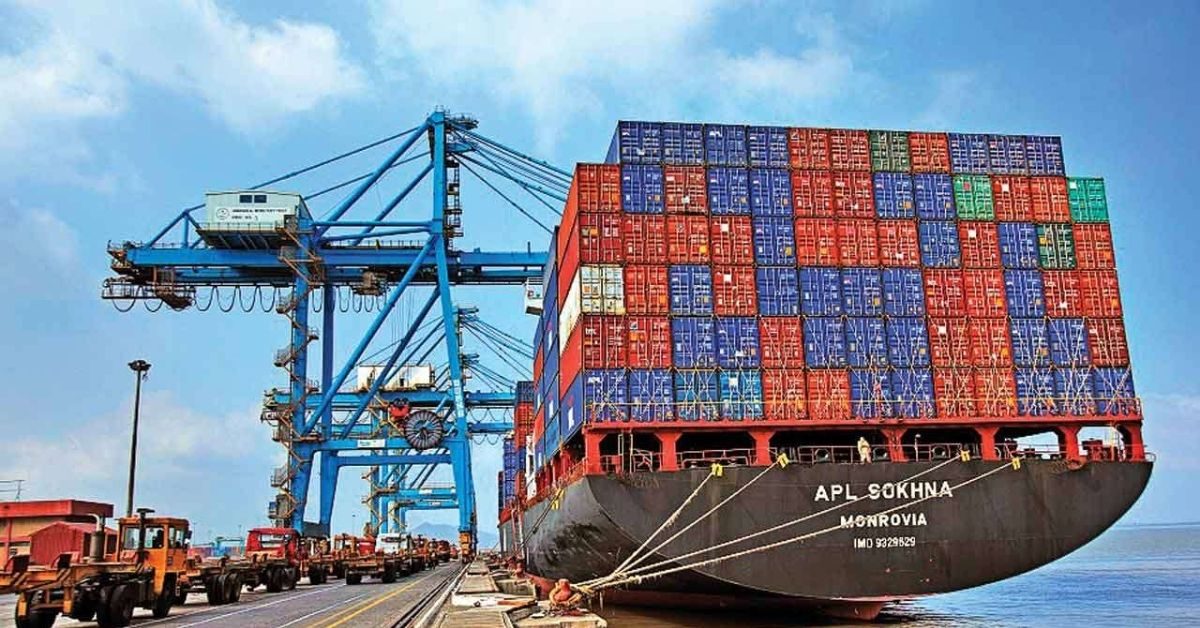Some 33 container freight stations (CFS) servicing Jawaharlal Nehru Port, India’s second busiest container gateway, are potentially losing more than 20,000 twenty-foot equivalent units (TEUs) a month cumulatively after the Customs Department last October directed all factory stuffed export containers to be routed only through the Centralized Parking Plaza (CPP) developed by the port authority for documentation and onward journey to the terminals for loading onto ships.
The Customs Department also ordered that a factory stuffed/sealed export container can be stored in the buffer yard of the Centralized Parking Plaza if it misses a ship until the next vessel arrives.
The twin decisions by the Customs Department have dealt a blow to the business prospects of container freight stations, some of which are run by logistics firm such as A P Moller-Maersk, Container Corporation of India, Allcargo Logistics, J M Baxi Ports & Logistics, Central Warehousing Corporation, Balmer & Lawrie, Gateway Distriparks, Continental Warehousing (Nhava Sheva), Seabird Marine Services, Navkar Corporation, PSA International, Apollo Logisolutions, Punjab State Container & Warehousing Corporation and Maharashtra State Warehousing Corporation.
It is also the second instance where the CFSs are facing an existential crisis after the government introduced the direct port delivery (DPD) scheme a few years ago.
Under the DPD scheme, import containers are delivered directly to pre-approved clients at the port itself instead of waiting in a CFS located outside for clearance, which reduces the cargo dwell time and cost for shippers.
A CFS is an off-dock facility licensed by the Customs Department to help decongest a port by shifting containerised cargo and for carrying out Customs-related activities outside the port area.
In October 2020, Jawaharlal Nehru Port Authority, the State-owned entity that runs the port located near Mumbai, opened a Centralized Parking Plaza for container tractor trailers along with Customs facilitation, as part of its efforts to promote ease of doing business.
The plaza spread over 45 hectares has a capacity to park 1,538 tractor trailers at a time.
The plaza was built to integrate the parking of tractor trailers carrying factory stuffed export containers at one place instead of multiple locations earlier. It was also designed to help integrate document processing by the Customs Department, ease the movement of container trucks on port roads and help the terminals plan their tractor trailer movements in a better way.
The port authority has outsourced the operation, management, and maintenance of the Centralized Parking Plaza to a private firm – Divvya CPP Pvt Ltd.
Some 35 percent of the export containers handled at Jawaharlal Nehru Port are factory sealed containers.
CFS operators said that the October order of the Customs Department has “deprived them of legitimate and rightful share of business”.
Besides, it has created a “monopolistic” situation in favour of a private entity who is managing the Centralized Parking Plaza owned by the port authority.
“The decision of the Customs Department is detrimental to the interests of container freight stations, who as licensed Customs Cargo Service Providers (CCSPs) have invested money in equipment and IT infra for handling cargo apart from providing employment to hundreds of local youths,” said a CFS operator.
“For business to happen in a fair and transparent manner as well as for promoting ease of doing business, exporters should have the right to choose their preferred service providers from amongst the CFSs as well as the CPP operator basis competitiveness and service level. Why should exporters be forced to go to a single facility nominated by the Customs Department,” he asked.
Rajesh Pandey, Chief Commissioner of Customs, Mumbai Zone II, who is overseeing the Jawaharlal Nehru Custom House, did not respond to a mail sent by ET Infra seeking comments.
Jawaharlal Nehru Port Authority Deputy Chairman Unmesh Wagh said that the Centralized Parking Plaza has helped cut export dwell time at the port by 20 percent to 3 hours.
The parking plaza is located just 5 kms from the terminal gates, requiring a travel time of 30 minutes.
“Routing factory stuffed export containers through the parking plaza is the cheapest and the most convenient way to send export cargo,” he said.
Trade sources said that taking export containers via the Centralized Parking Plaza is “cheaper” than CFS if a ship is waiting to load containers.
“But, if a ship is expected after 4-5 days, exporters go to a nearby CFS to deposit their containers which are then carted by the CFS operators to the terminal gates in time to catch the next ship when it arrives,” said a trade source.








One Response
Good useful information.
Thsnks for sharing